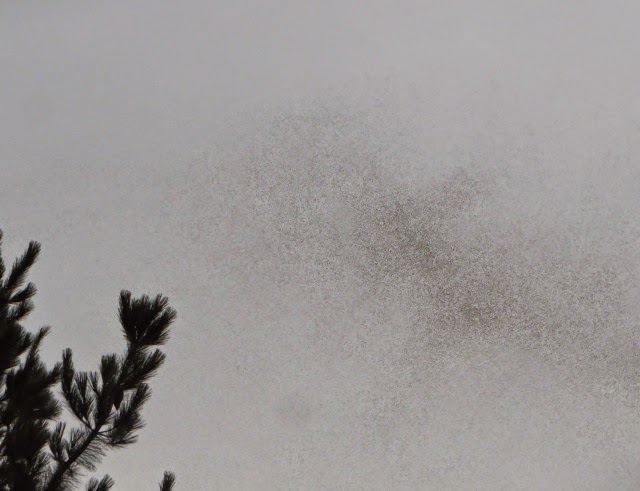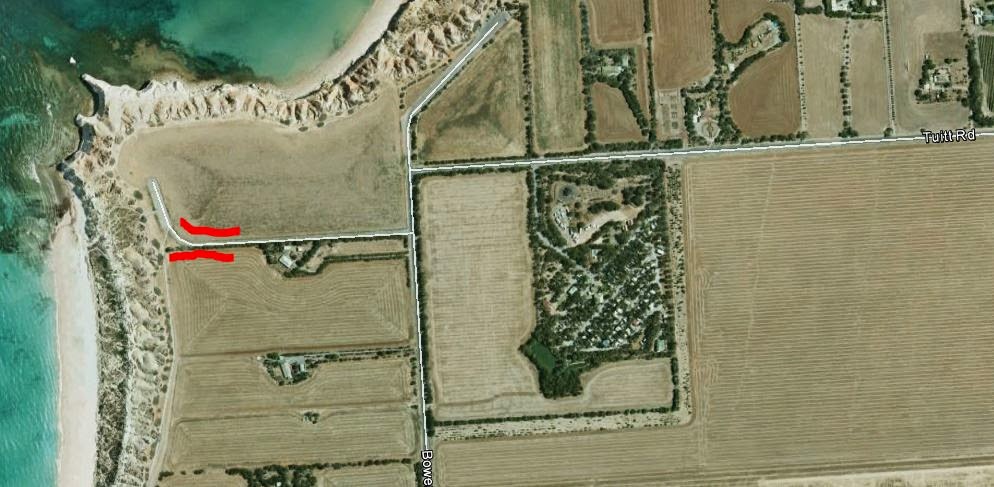Albury trip Day 2: Nearly across the Southern border
Thanks to our little friend we
had a disturbed night (Frances more so than me) but when I woke and had had a
coffee I felt fine. So despite the risks
of doing so not long after a vindaloo I went for a run. (In fact 'matters' were revealed to be normal
at a facility in Noreiul Park, so there might have been issues had I not
had the vindaloo.)
It was interesting to note that the name on the top of the old shop sign was German. Coming also from the number of Lutheran Churches this area seems to have a very strong German influence. Not quite the Barossa Valley but much stronger than I would have expected in an area I had thought to be settled by English selectors and Irish prisoners.
As is quite common there was a community mural.
The Memorial Hall seems to have mated with the School of Art
since the two buildings seem to be labelled the same from the street but the Hall is actually entered from a side street, where a good example of stained glass was visible.
On getting back to Albury Frances went to check out the Regional Art Gallery and then looked after Tammie while I sussed out the WiFi in the Library. It took a bit of work but I got to see some important emails.
It was also foggy so I couldn't
see much but worked out I ran to the old bridge over the Murray and back
through the centre of the town It was
interesting to note that the foundations of the bridge had space for an extra
lane. Not needed with the Hume Hwy
crossing just to the East of town.
Still foggy when I took the small
one for a walk to the River. We checked
out the Hovell Tree but failed to see the carving made in 1824 when Hume and
Hovell first arrived in the area (although a replica – in metal- is positioned
below the tree. We also failed to see
Victoria, but I am sure that was because of the fog rather than bark
replacement.
When we left we had some
difficulties finding our way out of Albury.
As is usually the case this seemed to be due street signs either being
hidden or not giving the name you expect (eg the Hume Highway - not the
Freeway – having some local name so we drove straight over it)!
Lavington had signs to everything
except the Showgrounds, where the War Memorial is located, so we passed
through. The fog was still rather
present at this stage. It started to
clear as we got to Jindera where we were startled to see a sign to an
Industrial Estate. When we found Jindera
had a population of 950 - to support an industrial Complex! - we were even more surprised. They had an old Church
a good War Memorial and a very lavish sporting complex.
On up the road to Burrumbuttock (a name which surely proves that Australia's indigenous people had a sense of humour).
After snapping the Memorial we went to check the very well maintained Lutheran Church
and the Cemetery behind it. This was interesting in a number of ways. Some of the old headstones were engraved in German (and showed that the settlers were a tough bunch, with quite a few lasting until high 80s).
a good War Memorial and a very lavish sporting complex.
On up the road to Burrumbuttock (a name which surely proves that Australia's indigenous people had a sense of humour).
After snapping the Memorial we went to check the very well maintained Lutheran Church
and the Cemetery behind it. This was interesting in a number of ways. Some of the old headstones were engraved in German (and showed that the settlers were a tough bunch, with quite a few lasting until high 80s).
Of more interest was the
appearance of a few graves out in the cultivated paddock
3 possibilities occur to me:
3 possibilities occur to me:
- The deceased had plague or some such; or
- The departed ones were of the wrong sect; or
- The farmer has quietly usurped a few acres with a high level of organic matter!
Votes are welcome but my money is
on #3!
Some of the gum trees in the
churchyard were flowering.
Our next town was
Walbundrie. While the first two seemed
quite prosperous Walbundrie seemed otherwise.
The Memorial Hall seemed OK and the oval had a really good set of change
sheds
but everything seemed a bit run down For example the footy team is a joint venture with the nearby - about 30km away, so nearby only by Australian standards - town of Rand.
The public school had a tablet giving an interesting insight into public finances. It was built for £486 but once a new school was built sold to the Show Society for £34! Comparing the size of this building with the old Church in Holbrook (costing £241) I reckon the Dept. of Education was well ripped off with the original deal.
but everything seemed a bit run down For example the footy team is a joint venture with the nearby - about 30km away, so nearby only by Australian standards - town of Rand.
The public school had a tablet giving an interesting insight into public finances. It was built for £486 but once a new school was built sold to the Show Society for £34! Comparing the size of this building with the old Church in Holbrook (costing £241) I reckon the Dept. of Education was well ripped off with the original deal.
After a major stupidity of navigation
was resolved we headed off to Walla Walla and chose a route that took us to
Morgan's Lookout.
The lookout is the white railings on the right side.Dan Morgan was a bushranger who used these rocks to spot the advance of Mr Plod. Many years later the area was a focus of the shearers strike and the strikers used to negotiate by lighting fires. The squatters used the lookout to see the fires and then mobilise resources to put them out.
The lookout is the white railings on the right side.Dan Morgan was a bushranger who used these rocks to spot the advance of Mr Plod. Many years later the area was a focus of the shearers strike and the strikers used to negotiate by lighting fires. The squatters used the lookout to see the fires and then mobilise resources to put them out.
There was ornithological interest
here also, in that Brown Treecreepers were around and feeding on the rocks as
well as on the fallen timber. They
didn’t stay still long enough for a decent photo.
On into Walla Walla.
If Walbundrie is going down for the 3rd time Walla Walla is definitely out of its depth, but still waving vigorously. They have a large school as an economic base and still seem to have some functioning car dealers and a rural supplies place. However several other businesses were shut.
If Walbundrie is going down for the 3rd time Walla Walla is definitely out of its depth, but still waving vigorously. They have a large school as an economic base and still seem to have some functioning car dealers and a rural supplies place. However several other businesses were shut.
Other than ticking a town the
attraction was Gum Flat Swamp, described as a top birding spot. We saw a few newies for the trip here
including a Nankeen Night-heron and the vegetation looked very interesting.
The only posing bird was a Dusky Woodswallow.
The only posing bird was a Dusky Woodswallow.
The best birds for the day were a
bit up the track however, where a dam was graced by Yellow-billed Spoonbills
and Australian Shelduck
while a pair of Whistling Kites flew noisily overhead after two Wedge-tailed Eagles cruised majestically off to the East.
while a pair of Whistling Kites flew noisily overhead after two Wedge-tailed Eagles cruised majestically off to the East.
Culcairn was a nice town but we
were getting weary.
It was interesting to note that the name on the top of the old shop sign was German. Coming also from the number of Lutheran Churches this area seems to have a very strong German influence. Not quite the Barossa Valley but much stronger than I would have expected in an area I had thought to be settled by English selectors and Irish prisoners.
As is quite common there was a community mural.
The Memorial Hall seems to have mated with the School of Art
since the two buildings seem to be labelled the same from the street but the Hall is actually entered from a side street, where a good example of stained glass was visible.
After leaving Culcairn we were
overtaken by a train! We called in
briefly at Gerogery where a kind shop owner stopped tidying up the fallen
leaves to open up the adjacent Commemorative Hall
to let me take a few snaps of the Roll of Honour etc.
to let me take a few snaps of the Roll of Honour etc.
On getting back to Albury Frances went to check out the Regional Art Gallery and then looked after Tammie while I sussed out the WiFi in the Library. It took a bit of work but I got to see some important emails.

























Comments